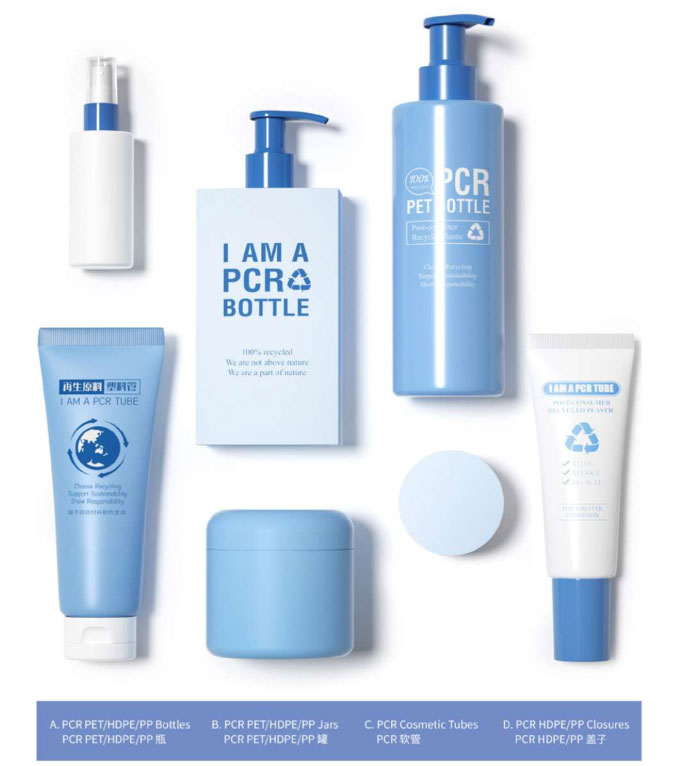
Post-consumer resin (PCR) is an environmentally-friendly packaging option that many manufacturers are using in support of recycling programs, consumer demand, and to reduce their impact on landfills.
PCR plastics are the recycled materials from existing PET bottles and other plastics. These materials are recycled into other packaging materials through community recycling programs. With an estimated 30 billion bottles of water being sold every year across the United States, there is a serious need for increasing the usage of PCR materials to make new products
How is PCR used?
In some cases, plastics can’t be recycled into new bottles without first adding new raw materials because the plastics may not be strong enough to make the new container. But there are newer, more innovative ways to create new, clear-looking plastic bottles without using virgin materials.
Several bottle manufacturers are able to incorporate recycled PET and HDPE plastics that are available through recycling programs in the form of PCR. Plastics are cleaned and turned into pellets before being reprocessed into food-safe, FDA-approved plastic bottles.
Weak plastics can also be downcycled into other forms of plastic packaging, still saving the environment from harmful plastic refuse.
What are the benefits of PCR?
PCR plastic is made from plastic we already have and it’s both cost-effective and environmentally friendly. By using what we already struggle to get rid of to protect the planet, manufacturers gain an affordable option for their packaging.
Reprocessing existing plastics uses less energy and fossil fuels. Overall, the environment is saved from excess pollution and wasted resources while manufacturers are still able to produce a viable, durable new plastic bottle.
PCR is also a readily available material, with plenty of opportunities to improve community recycling programs while providing a steady supply of recycled products.
